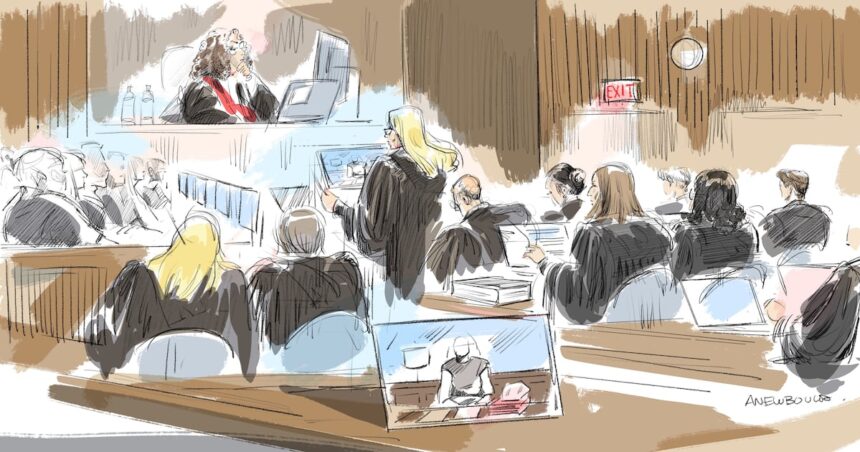“Were they men or boys?” The pointed question hung in the air of the crowded Ontario courtroom Tuesday, as defence lawyers continued their cross-examination of the woman at the center of a high-profile sexual assault case involving former junior hockey players.
The trial, which has drawn national attention across Canada, entered its second week as the defence team challenged the complainant’s recollection and choice of words in describing the alleged 2025 incident at a hotel following a sports gala.
During Tuesday’s proceedings, defence counsel Rick Eskins questioned why the complainant alternately referred to the accused as “men” in some instances and “boys” in others during her earlier testimony and police statements.
“I’m trying to understand why you called them boys in some instances and men in others,” Eskins asked. “Was there a reason for that?”
The complainant, whose identity is protected by a publication ban, responded that she used the terms interchangeably without specific intent, explaining that the accused were in their late teens at the time of the alleged assault.
“I wasn’t thinking about the specific words I was using,” she testified. “They were young men, junior hockey players. I wasn’t calculating my word choice.”
The cross-examination has proven grueling, with the complainant returning to the witness stand for a third consecutive day. Court heard she had consumed several alcoholic drinks on the night in question and acknowledged gaps in her memory—points the defence has seized upon to question the reliability of her account.
Legal experts observing the trial note that such defence strategies are common in sexual assault cases but remain controversial.
“Memory inconsistencies are expected in traumatic situations,” said Elaine Craig, a Dalhousie University law professor not connected to the case. “Research shows trauma can fragment memory without undermining the core truth of an experience.”
The case has sparked renewed debate about how sexual assault allegations are handled in the context of elite sports culture. Advocates for sexual assault survivors have gathered outside the courthouse throughout the proceedings, while others have questioned the impact on the accused players’ careers.
The five former junior hockey players have pleaded not guilty to sexual assault charges. If convicted, they face potential prison sentences of up to 14 years.
Court documents revealed the complainant met one of the accused at a sports gala before returning to a hotel room. She alleges that four other players subsequently entered the room, and she was sexually assaulted while intoxicated.
The defence has suggested the encounter was consensual—a claim the complainant firmly denies.
The trial continues amid broader political discussions about reforming Canada’s approach to sexual assault cases. Justice Minister Arif Virani recently proposed legislation to strengthen protections for complainants in sexual assault trials, though these changes would not affect the current proceedings.
As the news of the trial spreads through hockey communities and beyond, questions emerge about the responsibilities of sports organizations in educating young athletes about consent and appropriate behavior.
With testimony expected to continue throughout the week, many Canadians are left wondering: At what point will our society fully reckon with the complex intersection of sports culture, youth, alcohol, and consent?










